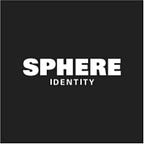The decline of online forms and the rise of easy access
The sign-up form, as essential as it is for online business, may generate significant risk of poor customer experience for modern businesses. That simple web tool is a reason for lost sales and a contributor to compliance gaps. The need for forms disappears when companies integrate a self-sovereign digital identity system into their business processes. The customer experience improves, sales increase and businesses dramatically reduce their exposure to data privacy regulation.
Burdens of forms-based registration
Customer-entered data from online forms plays such an important role throughout a business that the concept of eliminating forms altogether is hard to fathom. Identity information is critical to a business’ sales and marketing activity. So why have online forms only copied existing paper forms? The time is ripe for the next stage in customer data capture.
The process itself is a significant contributor to lost sales. E-commerce software developer Barilliance studied worldwide shopping cart abandonment rates. It found that more than 78% of shoppers, and nearly 86% of mobile shoppers, never complete their purchase. Of these, 22% abandoned their cart when asked to create yet another user account.
The cultural context of online forms also contributes to abandoned purchases. In an interview with ShopperTrak, retail consultant Nicolas Rubeiz explained how Middle Eastern shopping culture makes online cart abandonment quite real. “Many Middle Eastern customers are still very reluctant to give their card details online,” Rubeiz said. “There’s a growing appetite for ordering online then paying cash on delivery…. Many customers change their minds while waiting for home delivery, then simply don’t collect their purchase when it arrives.” This remains a future challenge for businesses in the region.
Data accuracy inevitably suffers when customers enter their personal information, too. The latest survey from Experian Data Quality of digital consumers’ behaviour found that, when confronted with a registration form, a significant number reported entering inaccurate information. Within the APAC region, for example, 5% of respondents did this deliberately to protect their privacy and another 20% reported doing so unintentionally.
Validating, confirming and maintaining customer data is increasingly burdensome. Within the financial industry alone, Thomson-Reuters reported, companies spend an average $48 million meeting Know-Your-Customer (KYC) requirements.
Given the many headaches that form-derived identity data create, it is little wonder that systems capable of eliminating forms altogether garner so much attention from businesses today.
How can digital identity help?
Self-sovereign digital identity systems that use the decentralised and secure nature of blockchain technology let individuals control the data they share online whilst allowing businesses to trust the validity of the data.
One common use of online forms is to collect a customer’s residential address. An online retailer, for example, would need the information in order to ship the customer’s purchases. Demanding detailed address information from customers would drive up the retailer’s shopping cart abandonment rates. Digital identity systems can automatically transmit the required information. Making the checkout process even easier for the customer and reducing shopping cart abandonment rates.
Our retailer will see even more benefits than higher sales. The retailer’s database becomes more accurate as automatic collection retrieves data from trusted sources.
Digital identity minimalises data collection
Our retailer can take the integration of digital identity services a step further. One reason retailers keep customers’ shipping addresses is to save them the trouble of re-submitting their addresses with every purchase. Since the digital identity system transmits trusted data almost instantly, the retailer can collect the address every time without degrading the customer experience. The retailer no longer needs to keep addresses once customers receive their purchase.
In other instances, the retailer may not need to collect customers’ personal data at all. Governments expect retailers to bar the purchase of tobacco and other products by people below a certain age. With digital identity, the process becomes seamless and instant.
Through a technique called zero-knowledge proof, the retailer does not even need to learn the customer’s date of birth or age. The digital identity system will merely confirm that the customer is old enough to buy the product without disclosing their personal data. The confirmation is the only data the retailer records, thus reducing the personally identifiable data the retailer must manage.
The transformation of business through digital identity
Integrating digital identity systems into business processes will reduce costs dramatically. The regulatory burden of KYC and data privacy legislation will decline as verification by trusted sources replaces the need to collect personal data.
Simultaneously, businesses will see opportunities to generate more sales. The elimination of online forms alone will tear down one of the strongest barriers to online sales and new customer registrations.
Sphere Identity creates blockchain-based identity systems that hand control of identity back to individuals while streamlining customer sign-ups for business.
Sign up for updates from Sphere Identity by clicking here.
